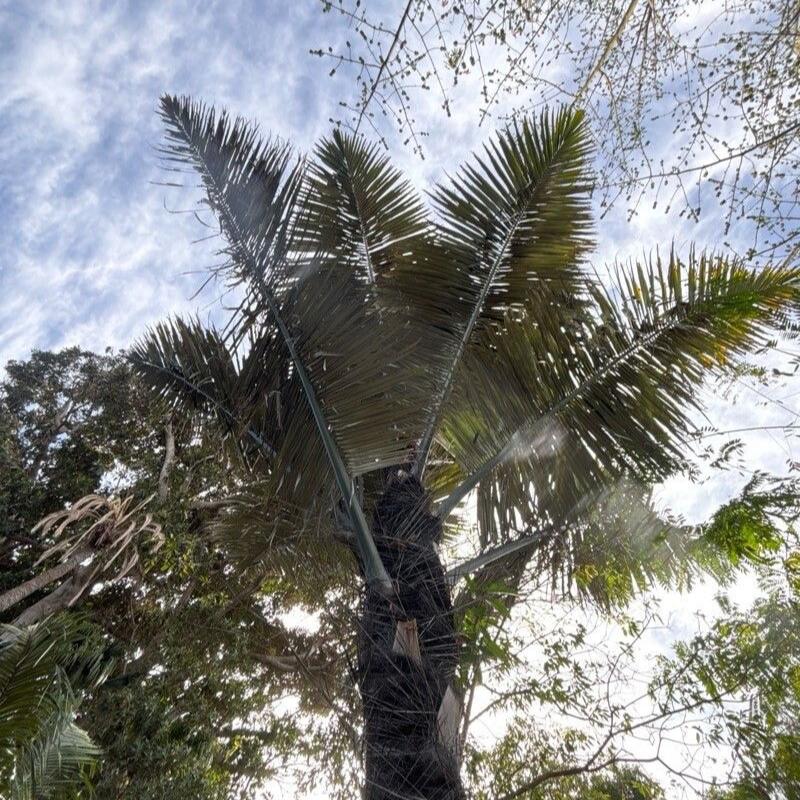Arenga pinnata, commonly known as the Sugar Palm, Kaong Palm, Black Sugar Palm, or Gomuti Palm, is a large, fast-growing palm native to tropical Asia, particularly in Indonesia, Malaysia, the Philippines, and Thailand. It is highly valued for its versatile uses, especially in producing sugar, sap, fibers, and starch.
The palm has a single trunk that can reach heights of 12–20 meters (40–65 feet) with a diameter of up to 60 cm (24 inches). The trunk is covered with old leaf bases and distinctive black fibers that give the tree its characteristic appearance. The leaves are pinnate and can grow up to 6–8 meters (20–26 feet) long, with numerous leaflets that are dark green on the top surface and silvery underneath.
Arenga pinnata is monoecious, meaning it produces both male and female flowers on the same plant in large inflorescences that emerge from the trunk just below the leaf crown. The fruit is a black drupe containing a hard seed and fibrous husk. Notably, the tree is monocarpic, meaning it flowers and fruits once and then dies, although this process can take many years.
🌴 Highly Versatile Tropical Species: Arenga pinnata is exceptional for its multiple commercial applications. The sugar palm is renowned for producing palm sugar and sweet sap, while its fibers and starch have valuable industrial uses. Its fast growth and tropical vigor make it an excellent choice for growers in warm climates seeking a productive and commercially viable palm species.







